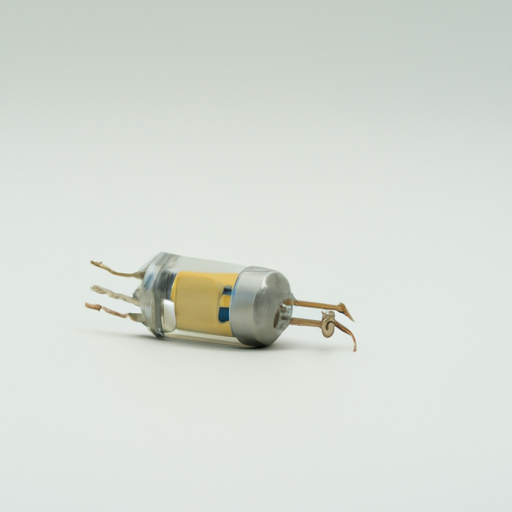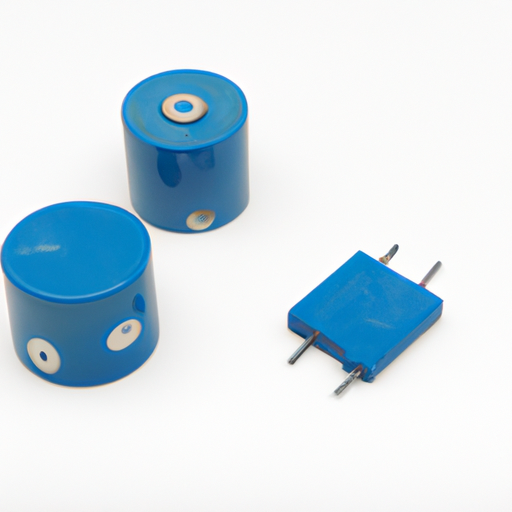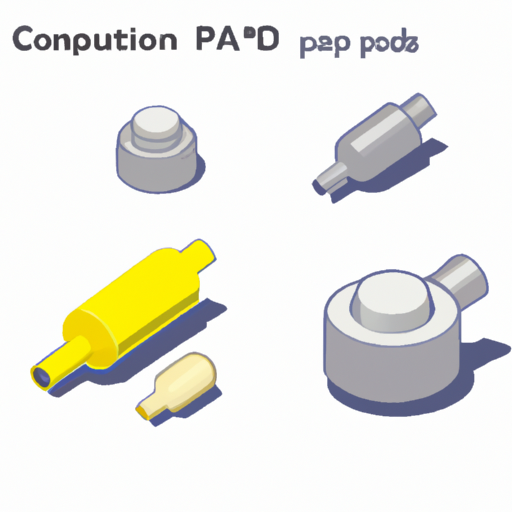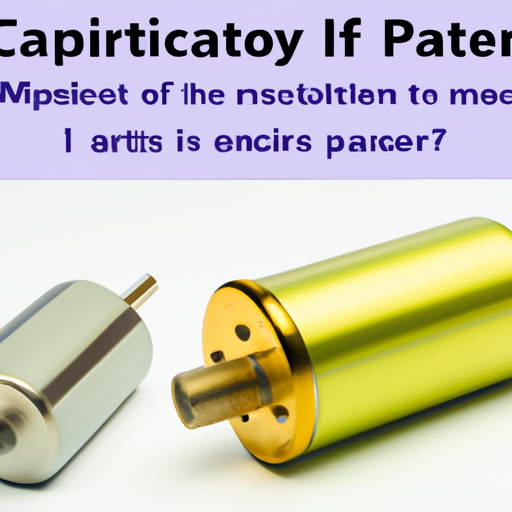What Kind of Product Does a Capacitor Serve?
I. Introduction
Capacitors are fundamental components in the world of electronics, playing a crucial role in the functionality of countless devices. Defined as passive electrical components that store and release electrical energy, capacitors are essential for various applications, from energy storage to signal processing. This article aims to explore the different types of capacitors, their roles in electronic products, their applications across various industries, and the future trends shaping capacitor technology.
II. The Basics of Capacitors
A. What is a Capacitor?
A capacitor consists of two conductive plates separated by an insulating material known as a dielectric. When a voltage is applied across the plates, an electric field forms, allowing the capacitor to store energy in the form of an electric charge. The amount of charge a capacitor can store is measured in farads (F), with most capacitors used in practical applications measured in microfarads (µF) or picofarads (pF).
B. Types of Capacitors
Capacitors come in various types, each suited for specific applications:
1. **Ceramic Capacitors**: These are widely used due to their small size, low cost, and stability. They are ideal for high-frequency applications and are often found in decoupling and filtering circuits.
2. **Electrolytic Capacitors**: Known for their high capacitance values, electrolytic capacitors are polarized and typically used in power supply applications for smoothing and filtering.
3. **Tantalum Capacitors**: Similar to electrolytic capacitors but with better performance in terms of stability and reliability, tantalum capacitors are often used in compact electronic devices.
4. **Film Capacitors**: These capacitors use a thin plastic film as the dielectric and are known for their excellent stability and low loss characteristics, making them suitable for audio and high-frequency applications.
5. **Supercapacitors**: Also known as ultracapacitors, these devices can store large amounts of energy and are used in applications requiring rapid charge and discharge cycles, such as energy storage systems.
C. Key Specifications
When selecting a capacitor, several key specifications must be considered:
1. **Capacitance**: The ability of a capacitor to store charge, measured in farads.
2. **Voltage Rating**: The maximum voltage a capacitor can handle before it risks breakdown.
3. **Equivalent Series Resistance (ESR)**: A measure of the resistance a capacitor presents to alternating current, affecting its efficiency and performance in circuits.
III. The Role of Capacitors in Electronic Products
Capacitors serve multiple functions in electronic products, making them indispensable in modern technology.
A. Energy Storage
1. **Power Supply Smoothing**: Capacitors are used in power supply circuits to smooth out voltage fluctuations, ensuring a stable output. This is particularly important in devices like computers and televisions, where consistent power is crucial for performance.
2. **Energy Buffering**: In applications such as electric vehicles, capacitors can store energy generated during regenerative braking, which can then be used to power the vehicle during acceleration.
B. Signal Processing
1. **Filtering Applications**: Capacitors are integral to filter circuits, which remove unwanted frequencies from signals. This is essential in audio equipment, where capacitors help maintain sound quality by filtering out noise.
2. **Timing Circuits**: Capacitors are used in timing applications, such as oscillators and timers, where they help control the timing of signals in devices like clocks and microcontrollers.
C. Coupling and Decoupling
1. **AC Coupling in Audio Applications**: Capacitors allow AC signals to pass while blocking DC signals, making them ideal for coupling audio signals between different stages of an amplifier.
2. **Decoupling in Power Supply Circuits**: Capacitors are used to decouple power supply lines from noise, ensuring that sensitive components receive clean power.
IV. Capacitors in Various Industries
Capacitors find applications across a wide range of industries, each leveraging their unique properties to enhance product performance.
A. Consumer Electronics
In consumer electronics, capacitors are ubiquitous. They are found in smartphones, tablets, laptops, and desktops, where they help manage power supply stability, signal integrity, and overall device performance.
B. Automotive Applications
The automotive industry increasingly relies on capacitors, especially with the rise of electric vehicles (EVs). Capacitors are used in energy storage systems, regenerative braking, and infotainment systems, contributing to improved efficiency and performance.
C. Industrial Applications
In industrial settings, capacitors are essential for motor drives and power electronics. They help manage power quality, improve efficiency, and ensure reliable operation in various machinery and equipment.
D. Renewable Energy Systems
Capacitors play a vital role in renewable energy systems, such as solar inverters and wind turbine systems. They help manage energy storage and conversion, ensuring that renewable energy sources can be effectively utilized.
V. Innovations and Future Trends
As technology advances, so does the field of capacitor design and application.
A. Advancements in Capacitor Technology
1. **Miniaturization**: The trend toward smaller, more compact electronic devices has driven the development of miniaturized capacitors that maintain performance while occupying less space.
2. **Increased Energy Density**: Researchers are working on improving the energy density of capacitors, allowing them to store more energy in a smaller footprint, which is particularly beneficial for portable devices and electric vehicles.
B. Emerging Applications
1. **Electric Vehicles and Energy Storage Systems**: As the demand for electric vehicles grows, capacitors are becoming increasingly important for energy storage and management, enabling faster charging and improved efficiency.
2. **Internet of Things (IoT) Devices**: With the proliferation of IoT devices, capacitors are essential for managing power consumption and ensuring reliable operation in a wide range of applications.
C. Environmental Considerations
1. **Recycling and Sustainability**: As the electronics industry faces increasing scrutiny over environmental impact, the recycling of capacitors and other electronic components is becoming a priority.
2. **Biodegradable Capacitors**: Research is underway to develop biodegradable capacitors that can reduce electronic waste and minimize environmental impact.
VI. Conclusion
Capacitors are integral to modern electronics, serving a multitude of functions across various industries. From energy storage to signal processing, their versatility and reliability make them essential components in countless devices. As technology continues to evolve, the future of capacitors looks promising, with advancements in miniaturization, energy density, and sustainability paving the way for new applications and innovations. Understanding the role of capacitors in electronic products not only highlights their importance but also underscores the ongoing need for research and development in this critical field.
VII. References
1. Academic journals on electronics and capacitor technology.
2. Industry reports detailing the latest trends and innovations in capacitors.
3. Books and articles providing in-depth knowledge about capacitors and their applications in various fields.
This comprehensive overview of capacitors illustrates their significance in the electronic landscape, emphasizing their role in shaping the future of technology.












